Pulp fiction: Domingos Tótora’s recycled cardboard designs tell a Brazilian story
Domingos Tótora's recycled cardboard designs tell a Brazilian story at James Paris gallery

Surrounded by verdant mountains, the remote Brazilian region of Minas Gerais is a world away from the narrow Parisian streets in the Marais; yet the organic creations from Domingos Tótora seem perfectly suited to the white minimalist backdrop of gallery James Paris.
That the Brazilian designer achieves his striking, flawlessly-formed decorative objects exclusively from reclaimed cardboard enhances the contextual divide even further. Here, against the white-walled backdrop (conceived by DAS Studio), Tótora’s elongated vessels, ridged discs and slanted stools could be alternately interpreted as primitive or contemporary - yet are also unquestionably artisanal.
Every piece begins the same way: the cardboard is broken down into small enough pieces to be turned into a pulp. Tótora and his studio team then sculpt the forms by hand, sometimes leaving the texture smooth, other times forming tactile, elaborately repeated reliefs. Like a lo-fi version of firing clay, the works bake in the sun before any last finishing touches. The collection on display reaffirms how such humble material can be coaxed into a variety of finessed surfaces.
The most unexpected of all is a 2.5 metre-long solid bench; its burnt umber hue and crackled, almost granular, appearance could hardly be traced back to a pile of discarded boxes. One of the discs consists of small squares embellished with a dimensional pattern. A striped motif is subtly integrated into the fluted vases.
If there is an arte povera element to the concept, it also represents a deeper desire towards refined, sustainable design. 'He puts it to use rather than to waste,' says Candice Fauchon, who runs James Paris with her partner Paul Viguier, seeking out the best in Brazilian modernism. Tótora’s pieces are available as an open edition by special order, which makes sense given the endless supply of cardboard. 'It’s an approach in perfect harmony with nature,' she adds. It’s a satisfying thought that is reaffirmed by the faintly detectable earthy scent inherent to each piece.
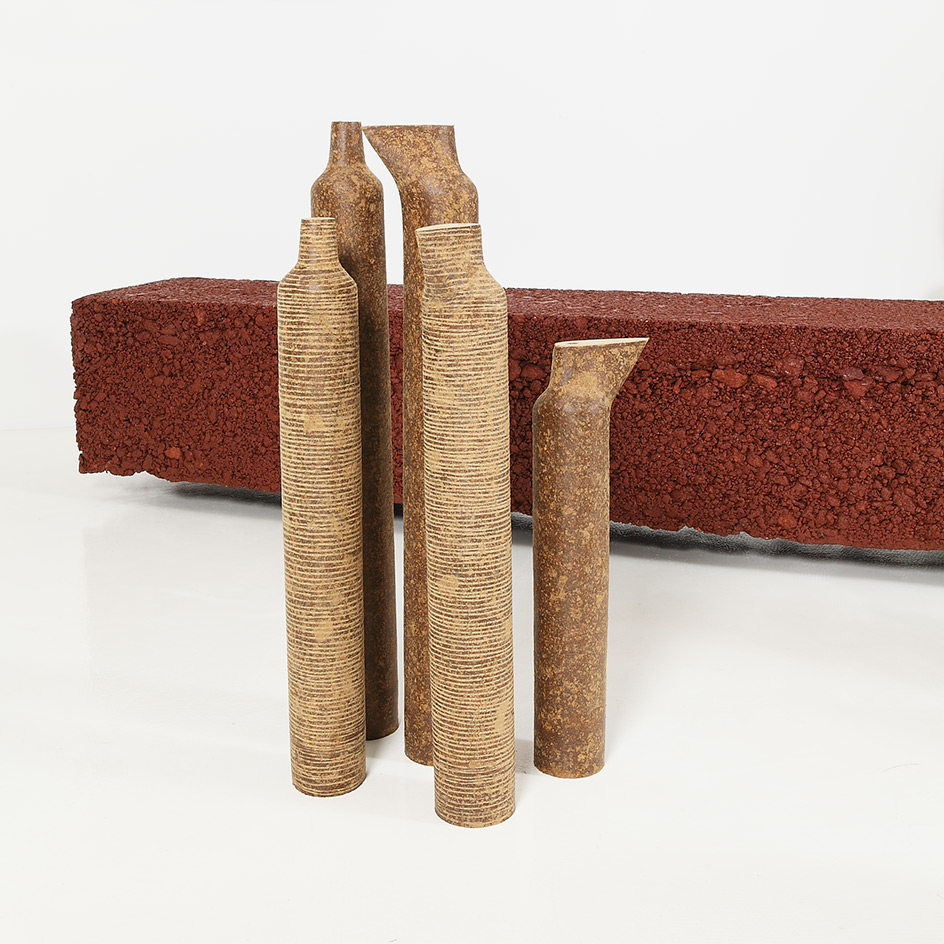
’Anforas’ (in foreground) and ’Banco Terrao’. Every piece begins the same way: the cardboard is broken down into small enough pieces to be turned into a pulp
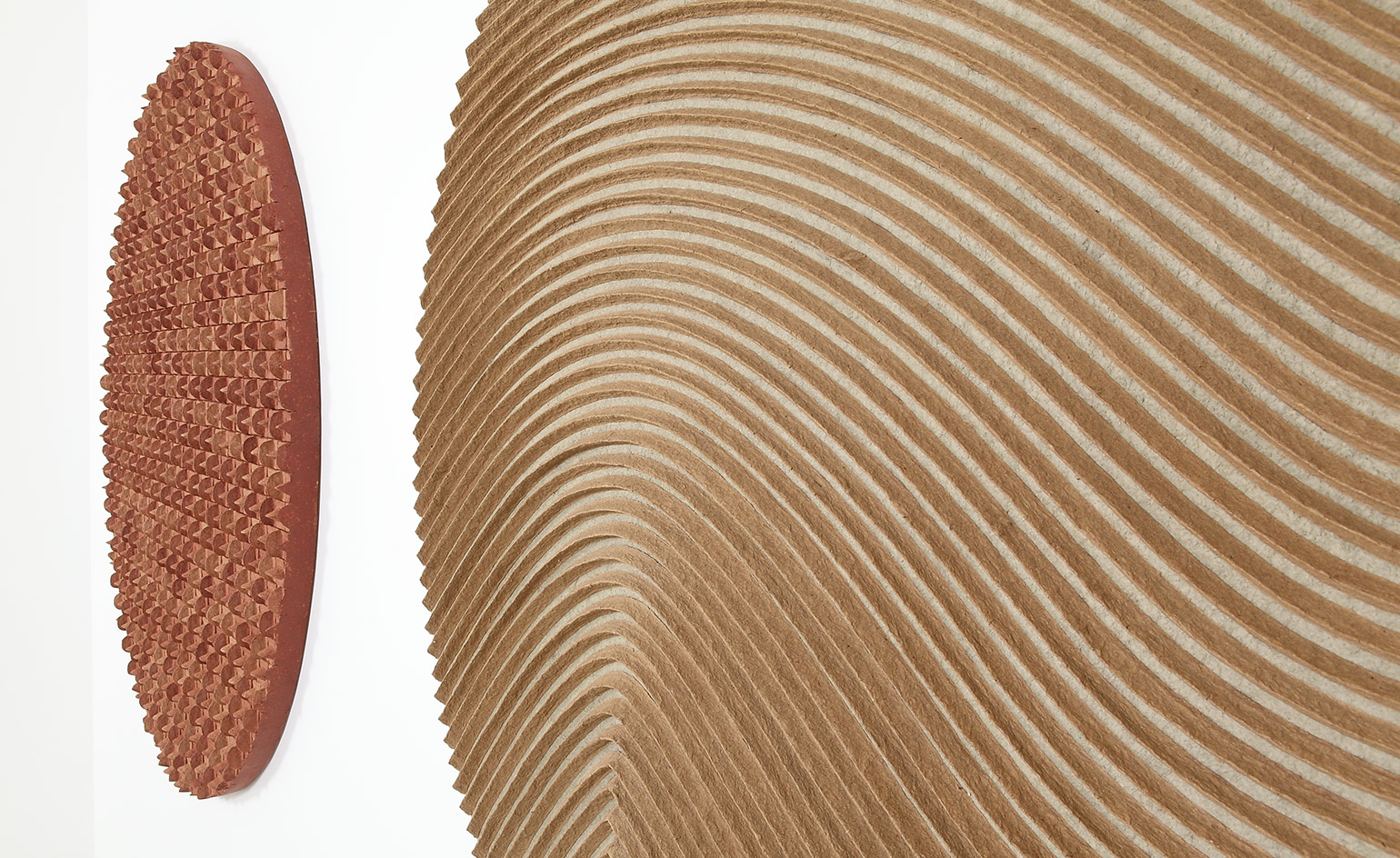
’Disco Plano Relevo’ (left) and ’Disco Plano Frisos’. Tótora and his studio team then sculpt the forms by hand, either creating a smooth texture or repeated reliefs
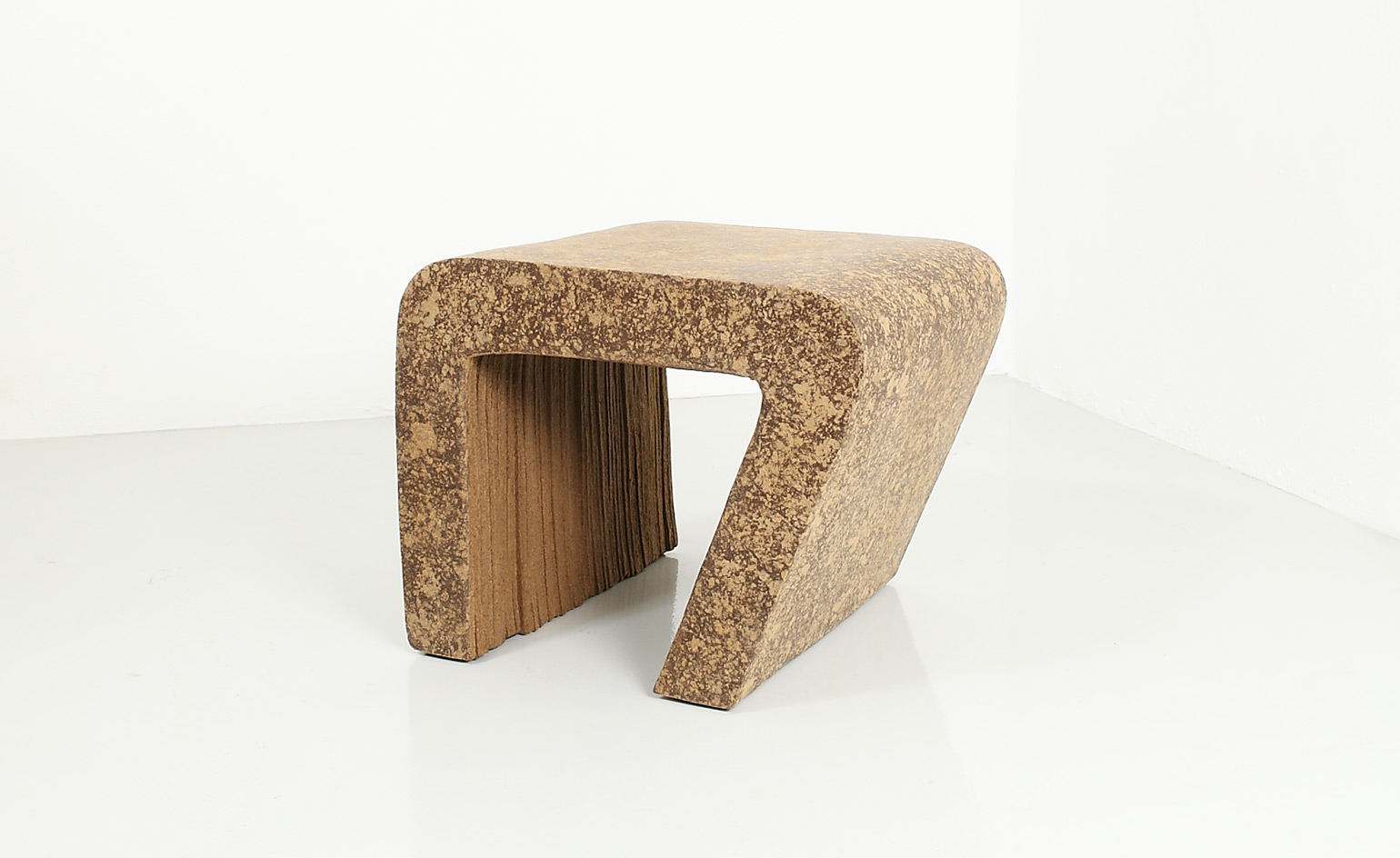
’Banco Pardo’, 2015
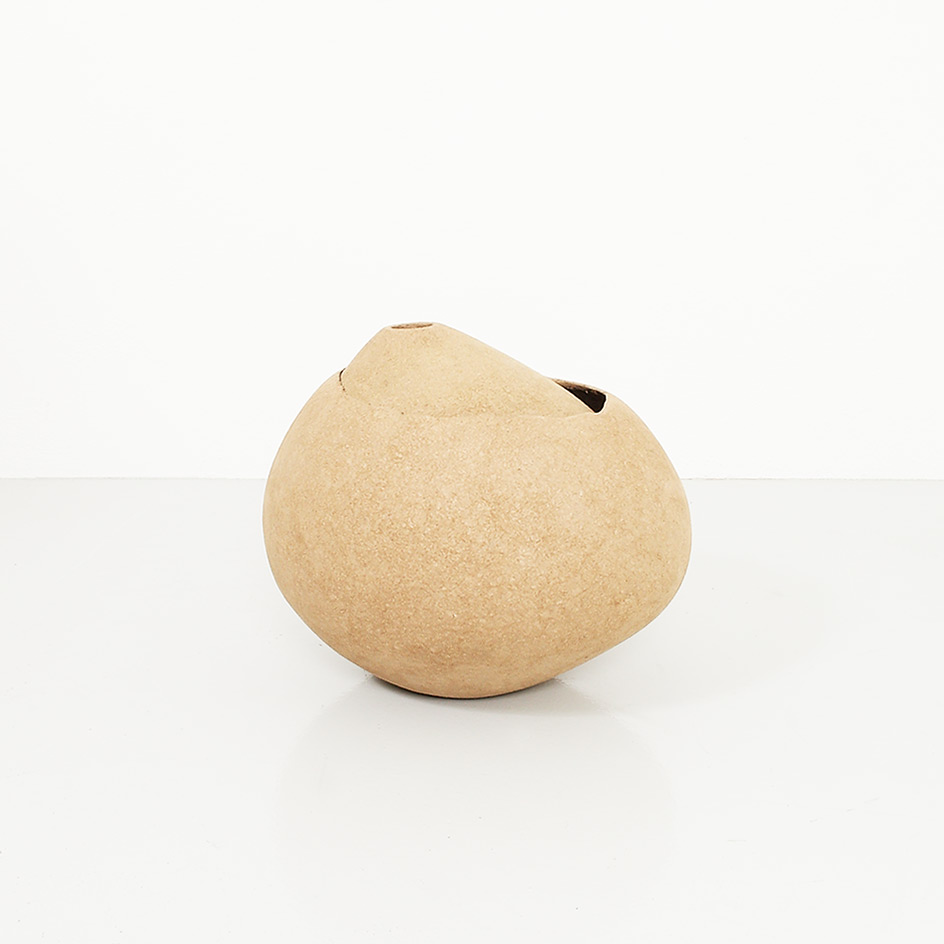
’Vaso Organico Casca Mod. 4’. Like a lo-fi version of firing clay, the works bake in the sun before any last finishing touches
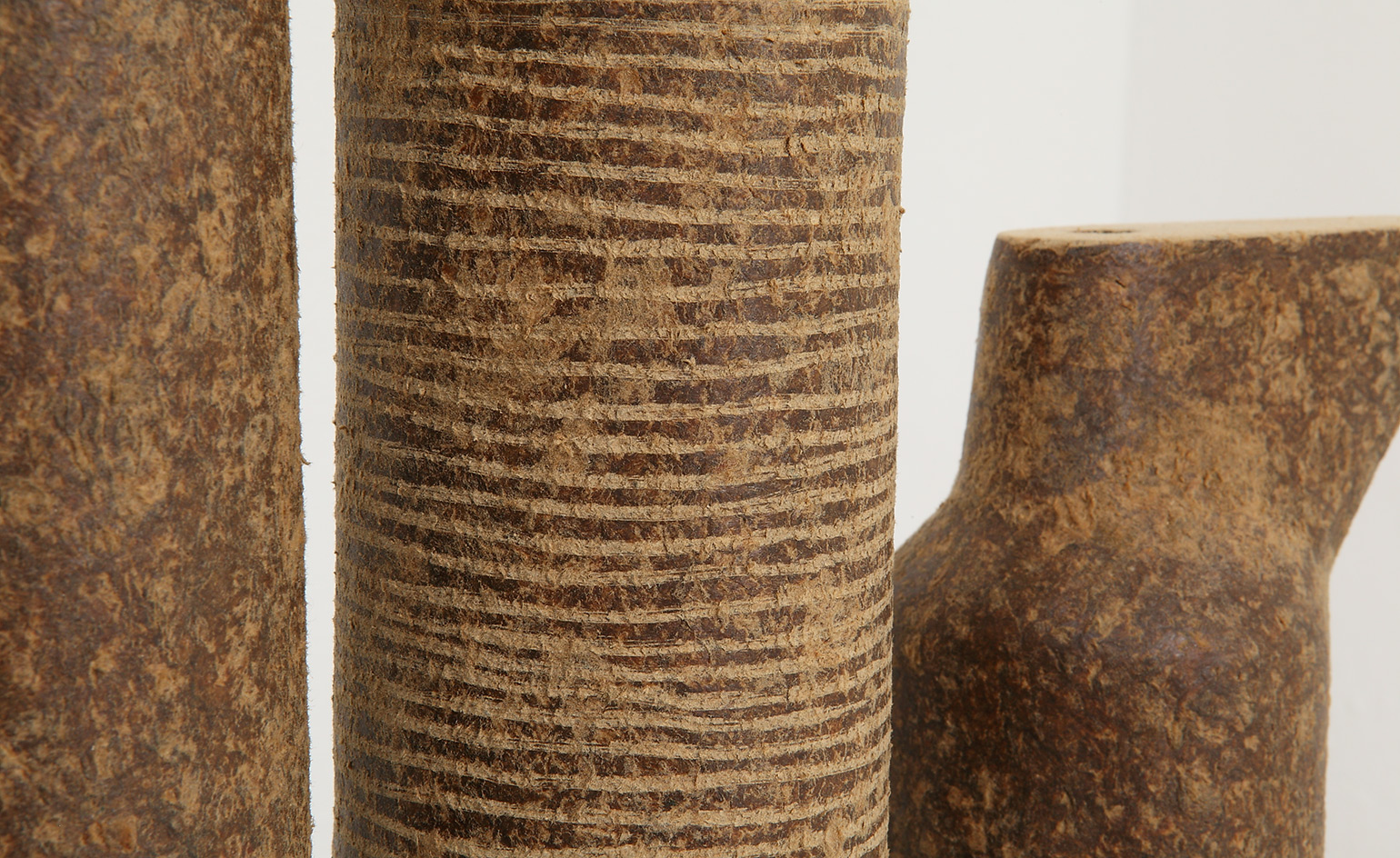
Detail of ’Anforas’. The collection reaffirms how such humble material can be coaxed into a variety of finessed surfaces
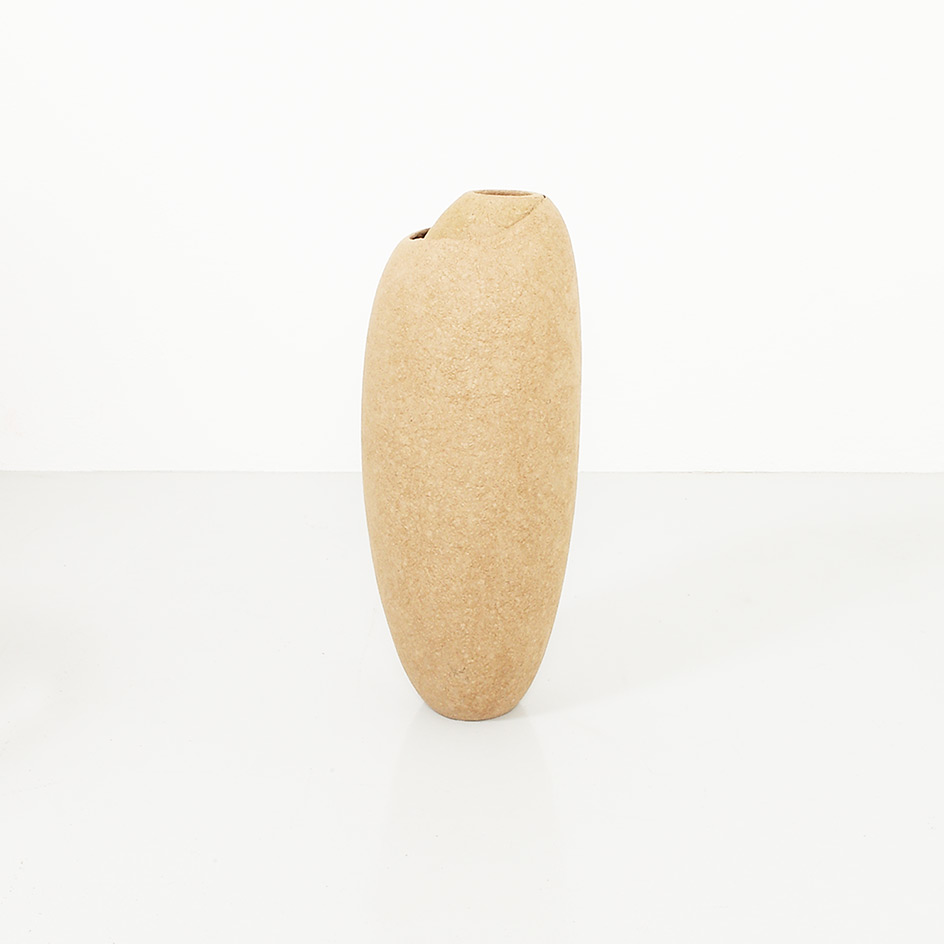
’Vaso Organico Casca Mod. 2’. Tótora’s pieces are available as an open edition by special order
INFORMATION
For more information, visit James Paris’ website
ADDRESS
18-20, Rue de Thorigny
75003 Paris
Wallpaper* Newsletter
Receive our daily digest of inspiration, escapism and design stories from around the world direct to your inbox.
-
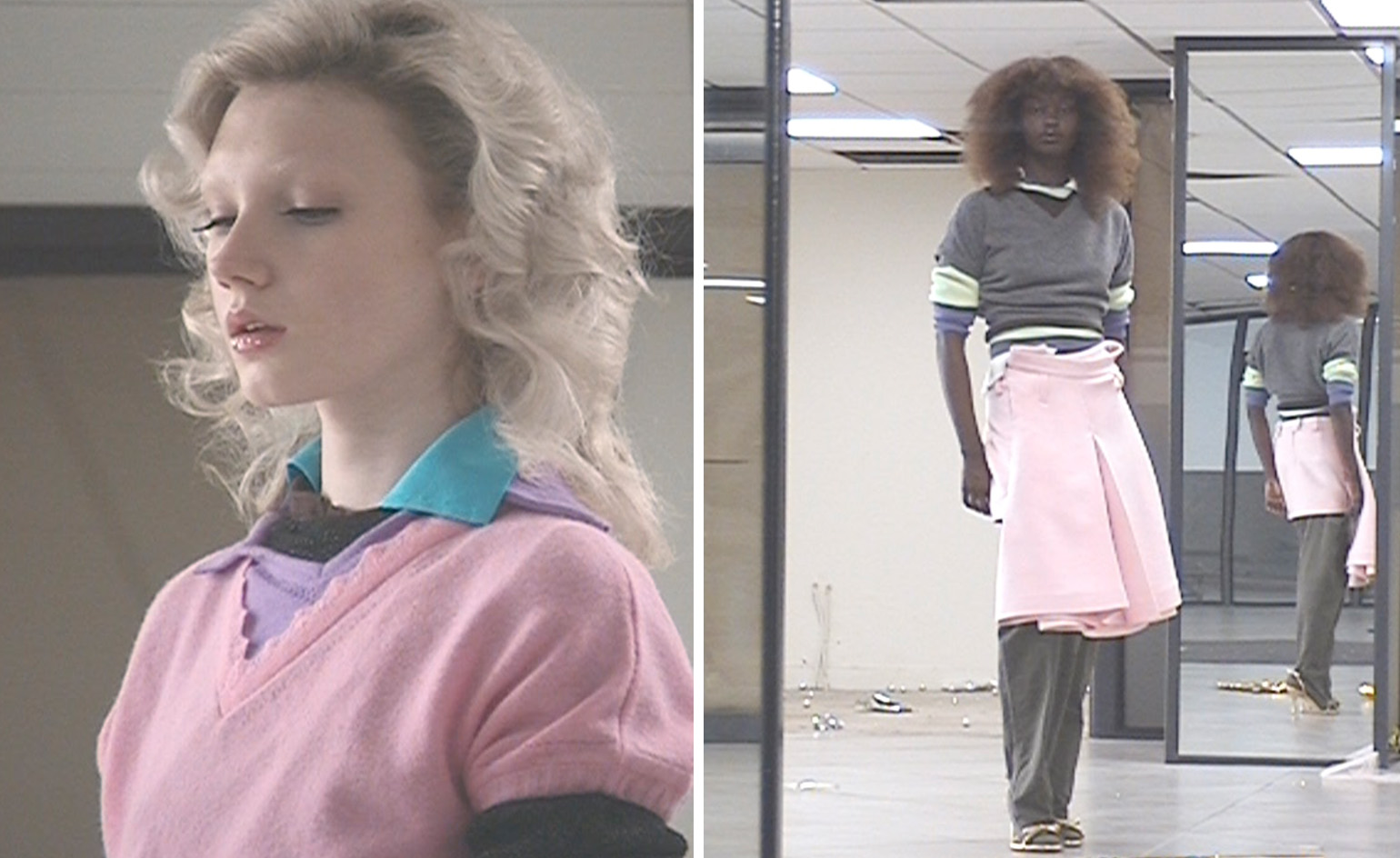 All-In is the Paris-based label making full-force fashion for main character dressing
All-In is the Paris-based label making full-force fashion for main character dressingPart of our monthly Uprising series, Wallpaper* meets Benjamin Barron and Bror August Vestbø of All-In, the LVMH Prize-nominated label which bases its collections on a riotous cast of characters – real and imagined
By Orla Brennan
-
 Maserati joins forces with Giorgetti for a turbo-charged relationship
Maserati joins forces with Giorgetti for a turbo-charged relationshipAnnouncing their marriage during Milan Design Week, the brands unveiled a collection, a car and a long term commitment
By Hugo Macdonald
-
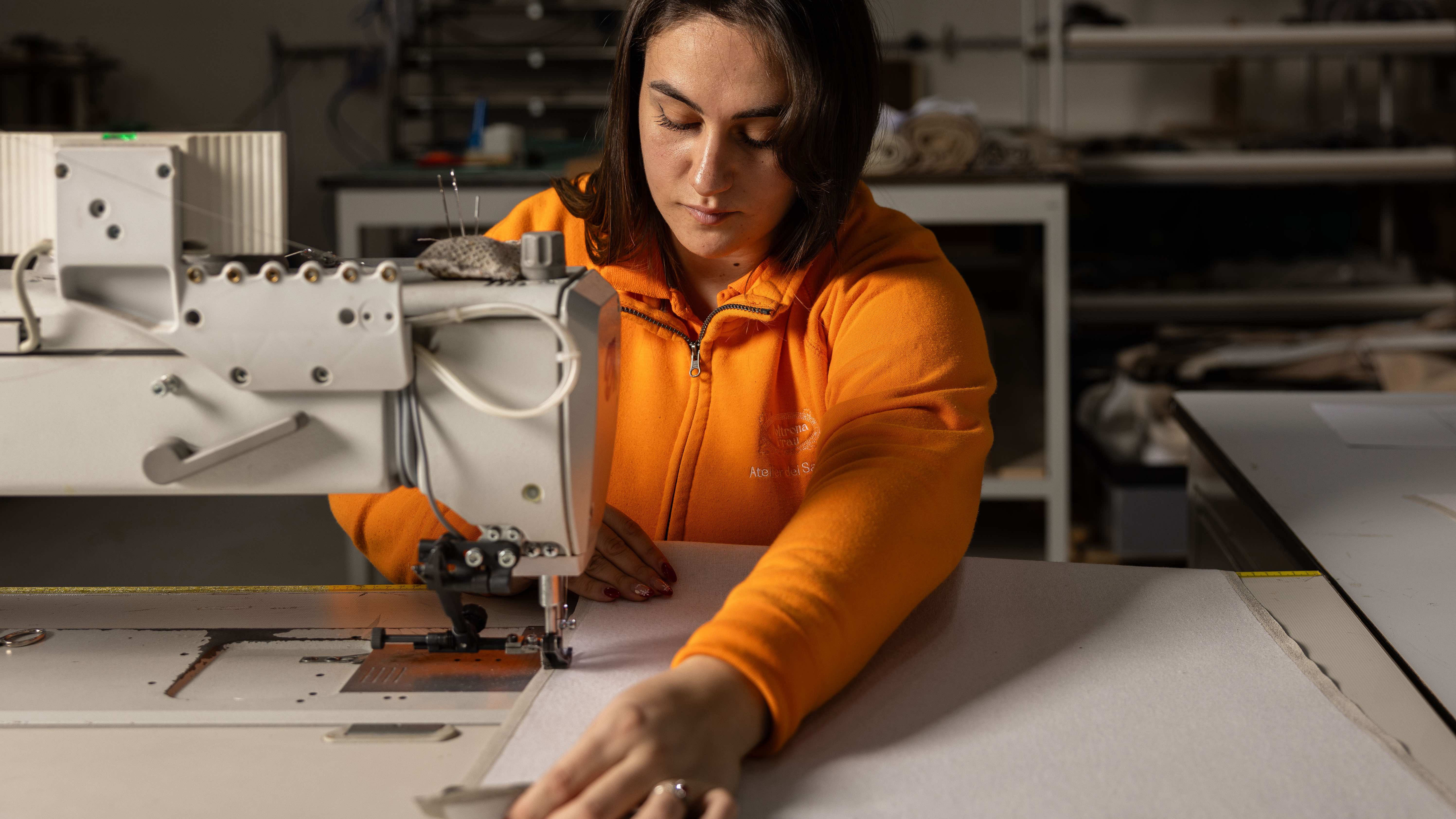 Through an innovative new training program, Poltrona Frau aims to safeguard Italian craft
Through an innovative new training program, Poltrona Frau aims to safeguard Italian craftThe heritage furniture manufacturer is training a new generation of leather artisans
By Cristina Kiran Piotti
-
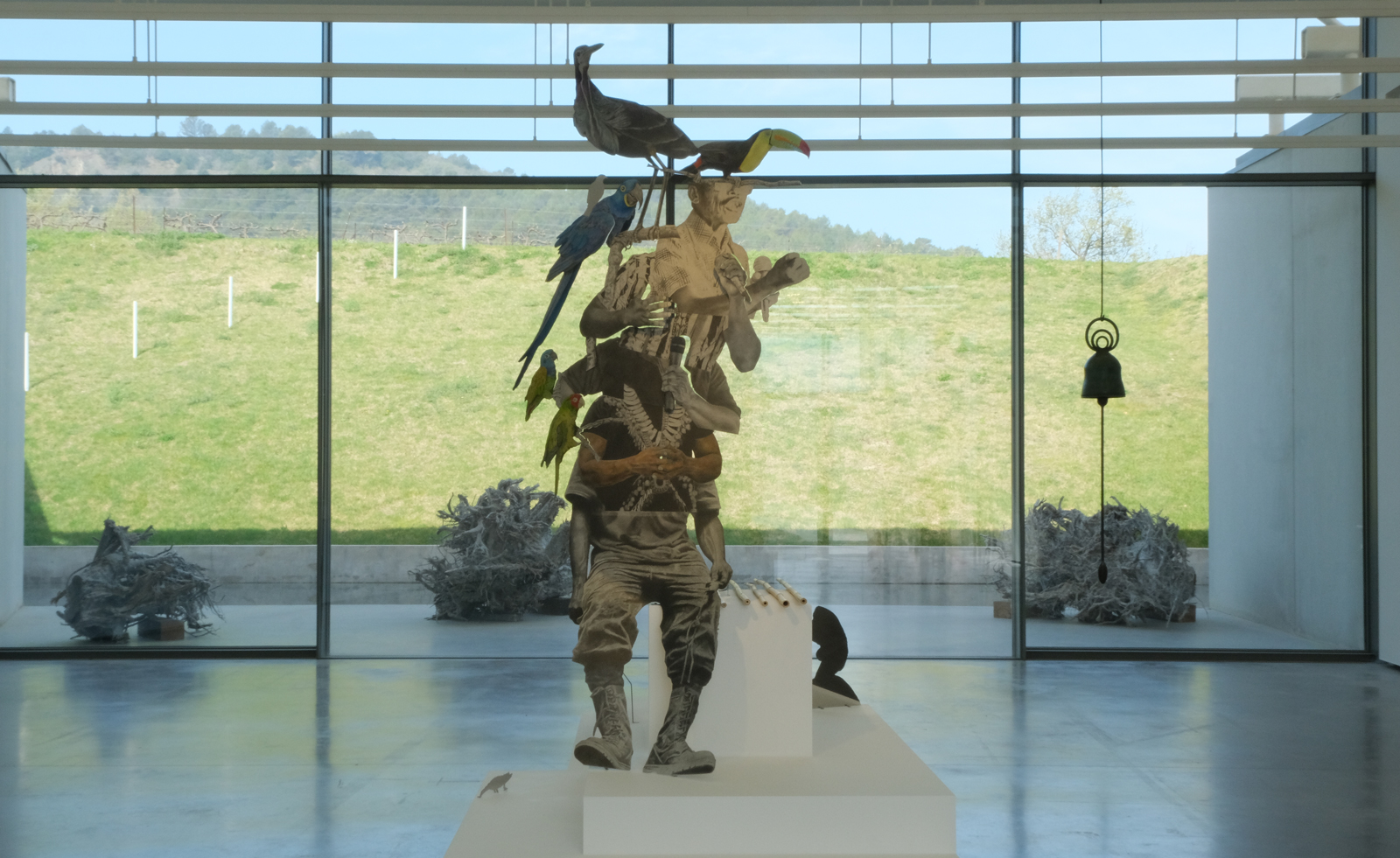 Contemporary artist collective Poush takes over Château La Coste
Contemporary artist collective Poush takes over Château La CosteMembers of Poush have created 160 works, set in and around the grounds of Château La Coste – the art, architecture and wine estate in Provence
By Amy Serafin
-
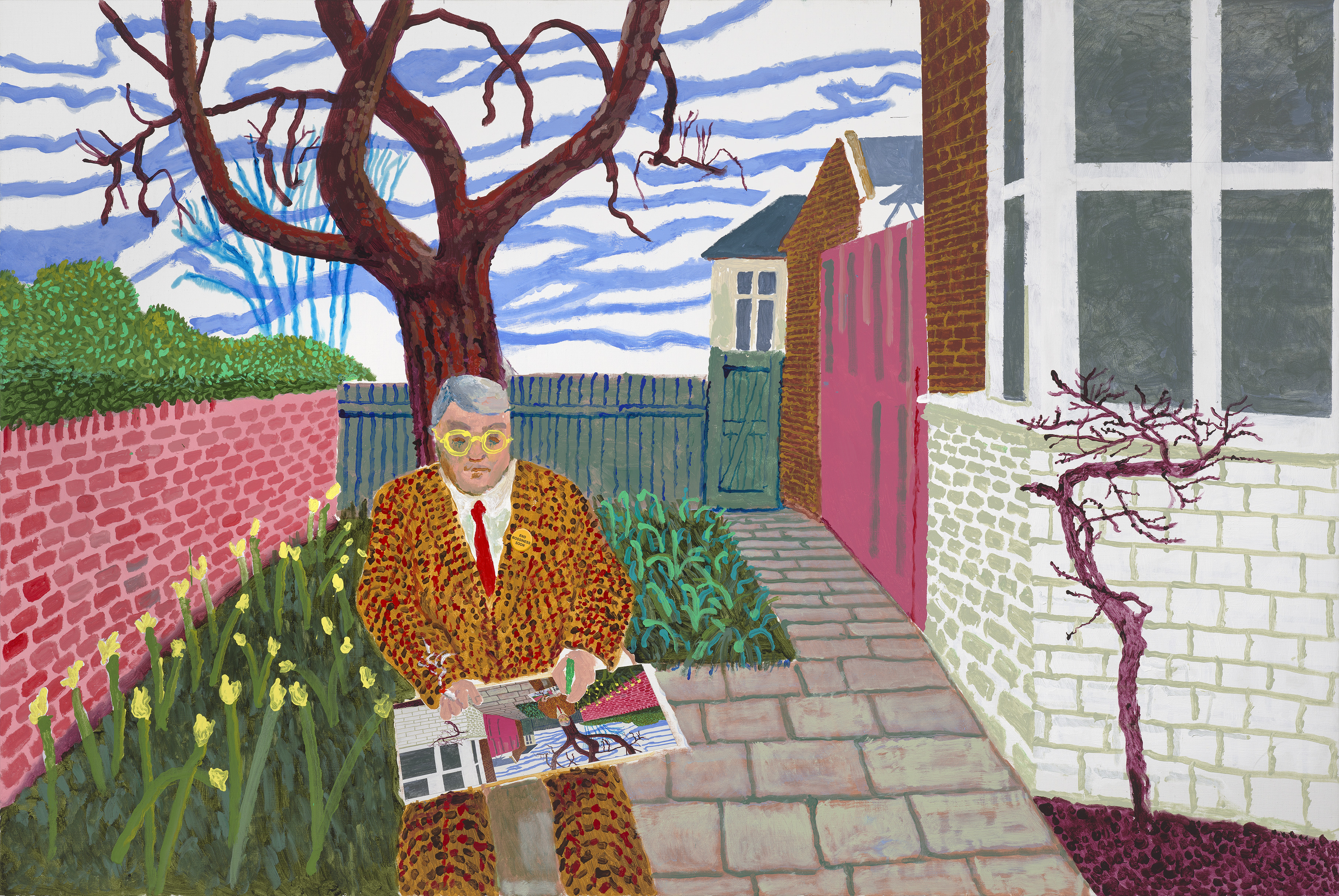 ‘David Hockney 25’: inside the artist’s blockbuster Paris show
‘David Hockney 25’: inside the artist’s blockbuster Paris show‘David Hockney 25’ has opened at Fondation Louis Vuitton in Paris. Wallpaper’s Hannah Silver took a tour of the colossal, colourful show
By Hannah Silver
-
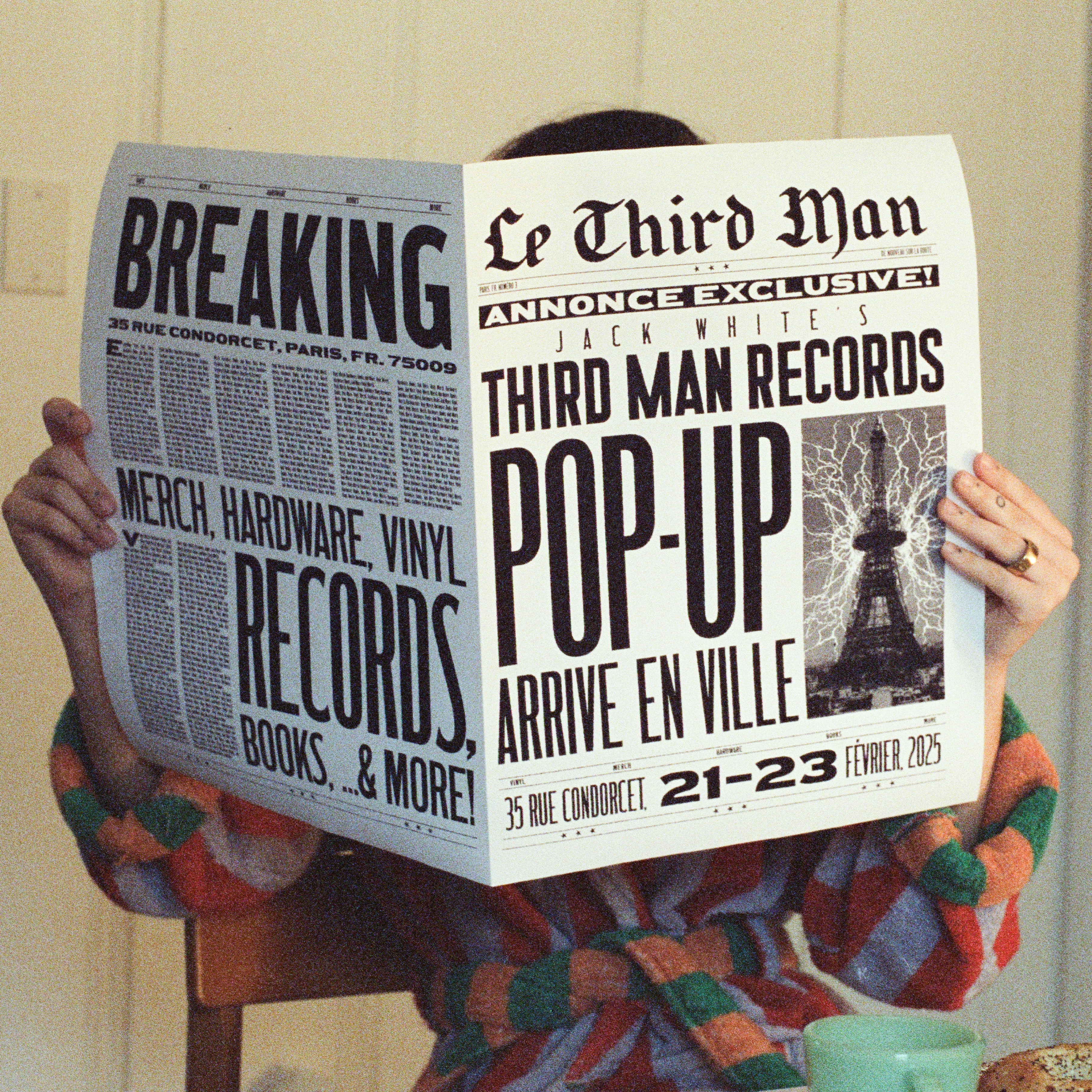 Jack White's Third Man Records opens a Paris pop-up
Jack White's Third Man Records opens a Paris pop-upJack White's immaculately-branded record store will set up shop in the 9th arrondissement this weekend
By Charlotte Gunn
-
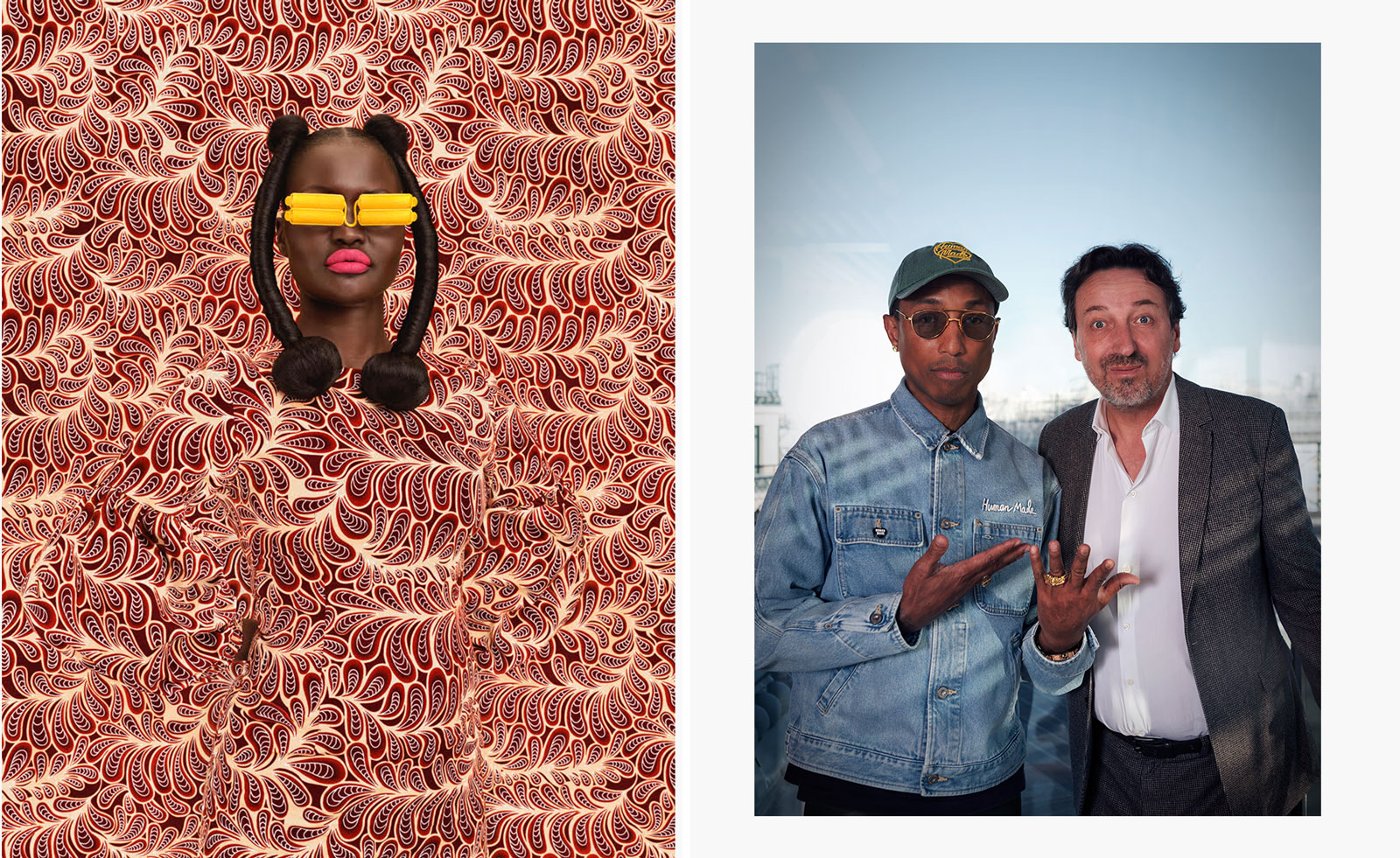 ‘The Black woman endures a gravity unlike any other’: Pharrell Williams explores diverse interpretations of femininity in Paris
‘The Black woman endures a gravity unlike any other’: Pharrell Williams explores diverse interpretations of femininity in ParisPharrell Williams returns to Perrotin gallery in Paris with a new group show which serves as an homage to Black women
By Amy Serafin
-
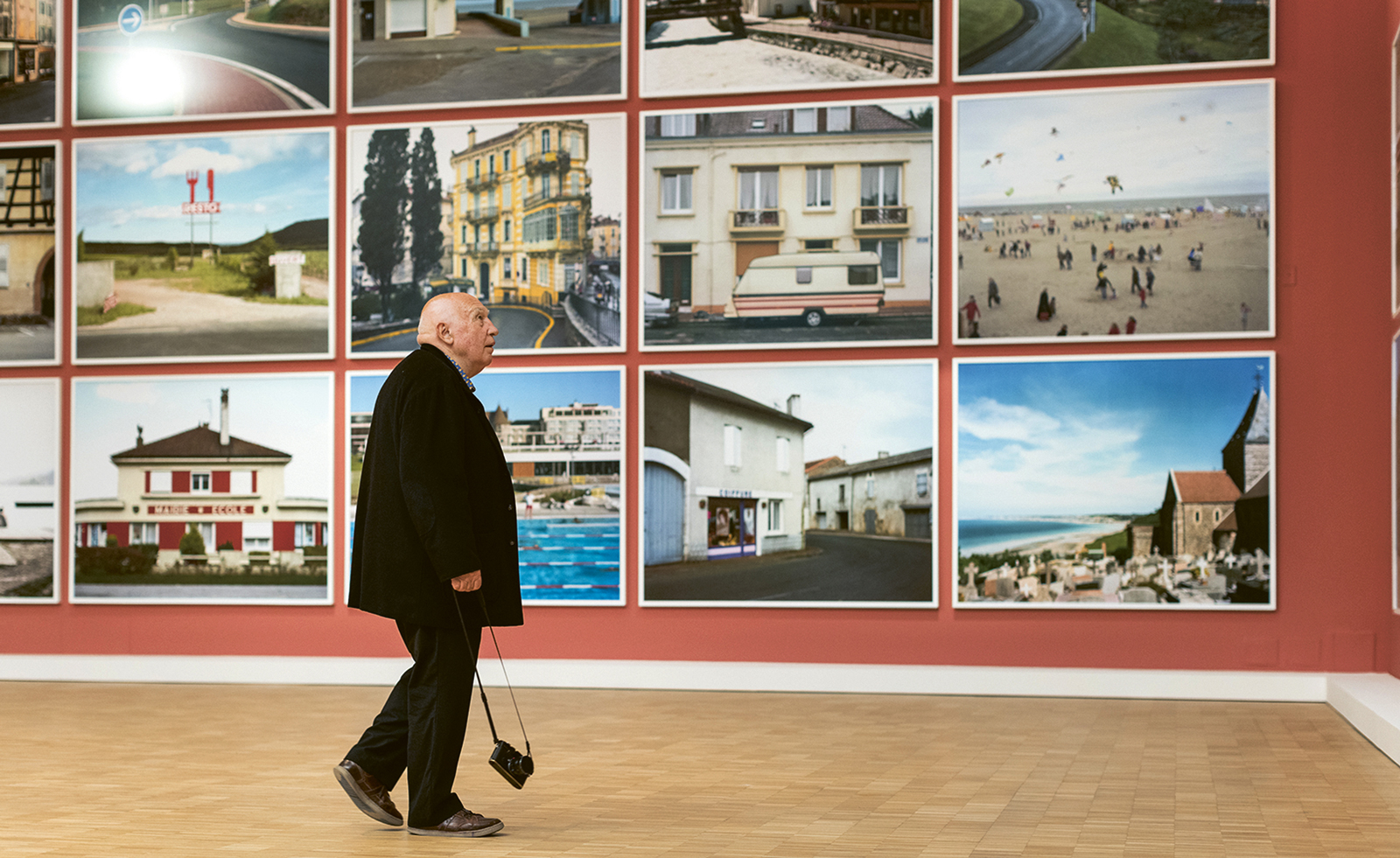 What makes fashion and art such good bedfellows?
What makes fashion and art such good bedfellows?There has always been a symbiosis between fashion and the art world. Here, we look at what makes the relationship such a successful one
By Amah-Rose Abrams
-
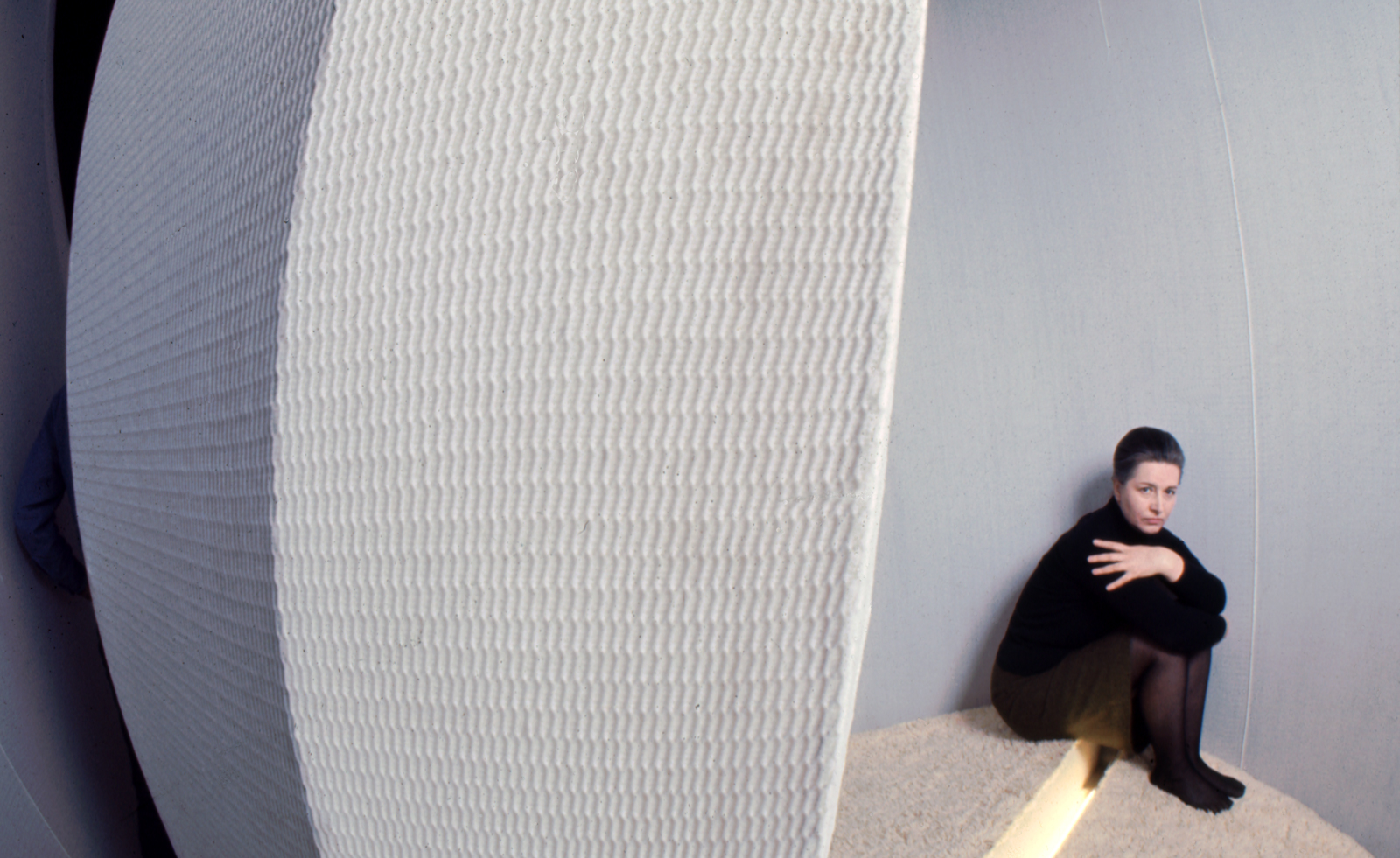 Architecture, sculpture and materials: female Lithuanian artists are celebrated in Nîmes
Architecture, sculpture and materials: female Lithuanian artists are celebrated in NîmesThe Carré d'Art in Nîmes, France, spotlights the work of Aleksandra Kasuba and Marija Olšauskaitė, as part of a nationwide celebration of Lithuanian culture
By Will Jennings
-
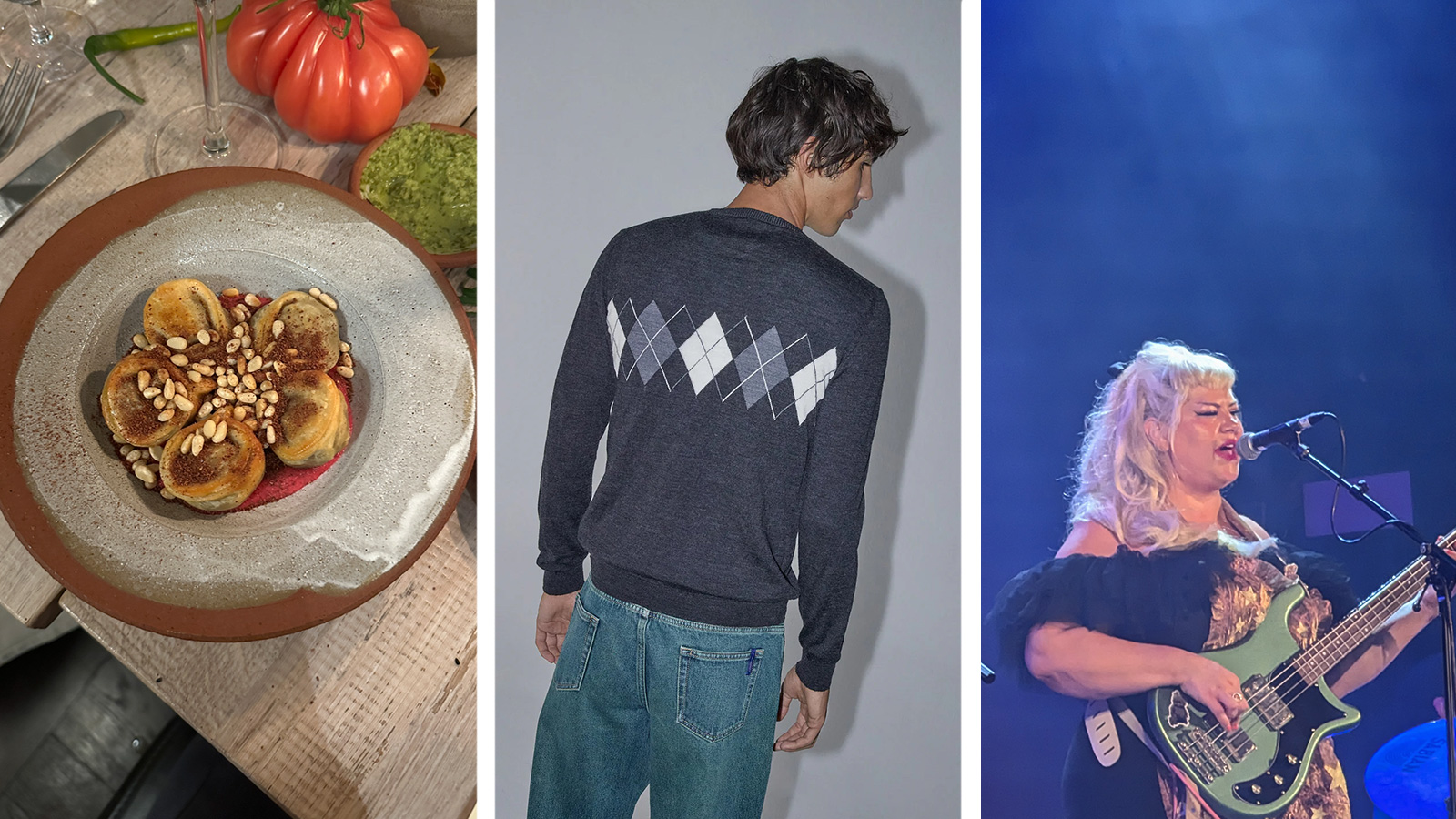 Out of office: what the Wallpaper* editors have been doing this week
Out of office: what the Wallpaper* editors have been doing this weekInvesting in quality knitwear, scouting a very special pair of earrings and dining with strangers are just some of the things keeping the Wallpaper* team occupied this week
By Bill Prince
-
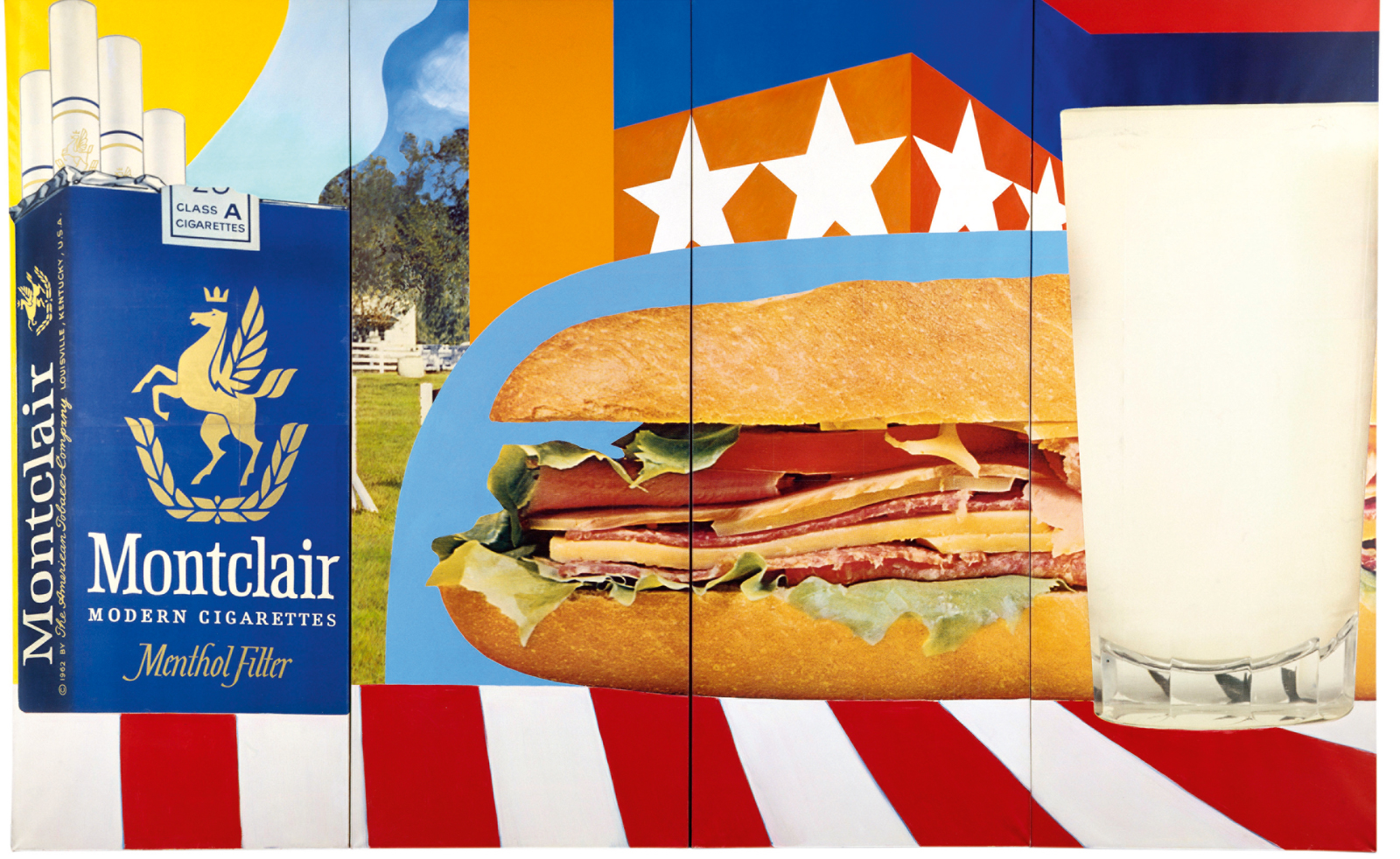 Tom Wesselmann’s enduring influence on pop art goes under the spotlight in Paris
Tom Wesselmann’s enduring influence on pop art goes under the spotlight in Paris‘Pop Forever, Tom Wesselmann &...’ is on view at Fondation Louis Vuitton in Paris until 24 February 2025
By Ann Binlot